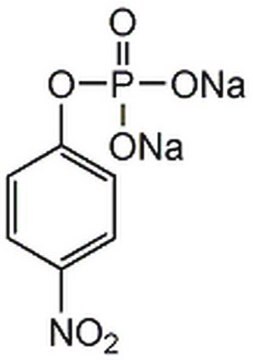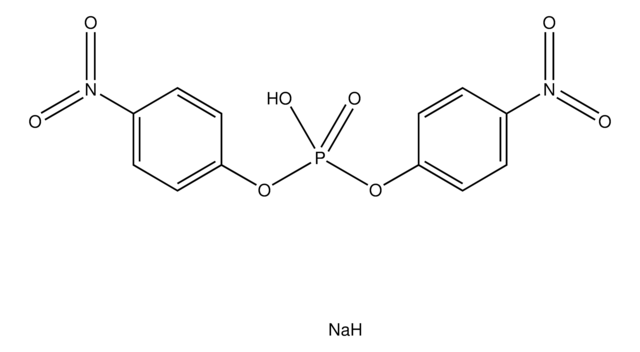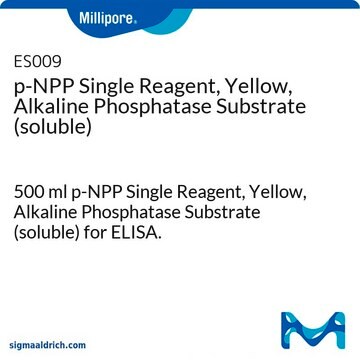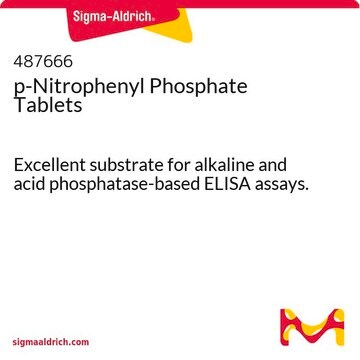N7653
p-Nitrophenyl Phosphate Liquid Substrate System
alkaline phosphatase substrate, liquid
Synonym(s):
4-Nitrophenyl phosphate disodium salt solution, pNPP
About This Item
Recommended Products
product name
p-Nitrophenyl Phosphate Liquid Substrate System, liquid
form
liquid
Quality Level
shipped in
wet ice
storage temp.
−20°C
SMILES string
[Na+].[Na+].[O-][N+](=O)c1ccc(OP([O-])([O-])=O)cc1
InChI
1S/C6H6NO6P.2Na/c8-7(9)5-1-3-6(4-2-5)13-14(10,11)12;;/h1-4H,(H2,10,11,12);;/q;2*+1/p-2
InChI key
VIYFPAMJCJLZKD-UHFFFAOYSA-L
General description
Application
Biochem/physiol Actions
Caution
Physical form
Signal Word
Danger
Hazard Statements
Precautionary Statements
Hazard Classifications
Eye Dam. 1 - Met. Corr. 1 - Repr. 2 - Skin Irrit. 2 - STOT RE 2 Oral
Target Organs
Kidney,Liver,Blood
Storage Class Code
8B - Non-combustible corrosive hazardous materials
WGK
WGK 3
Flash Point(F)
Not applicable
Flash Point(C)
Not applicable
Certificates of Analysis (COA)
Search for Certificates of Analysis (COA) by entering the products Lot/Batch Number. Lot and Batch Numbers can be found on a product’s label following the words ‘Lot’ or ‘Batch’.
Already Own This Product?
Find documentation for the products that you have recently purchased in the Document Library.
Customers Also Viewed
Articles
NBT-BCIP substrate system aids in western blotting and immunohistological staining, producing a blue-purple insoluble end product.
Our team of scientists has experience in all areas of research including Life Science, Material Science, Chemical Synthesis, Chromatography, Analytical and many others.
Contact Technical Service









